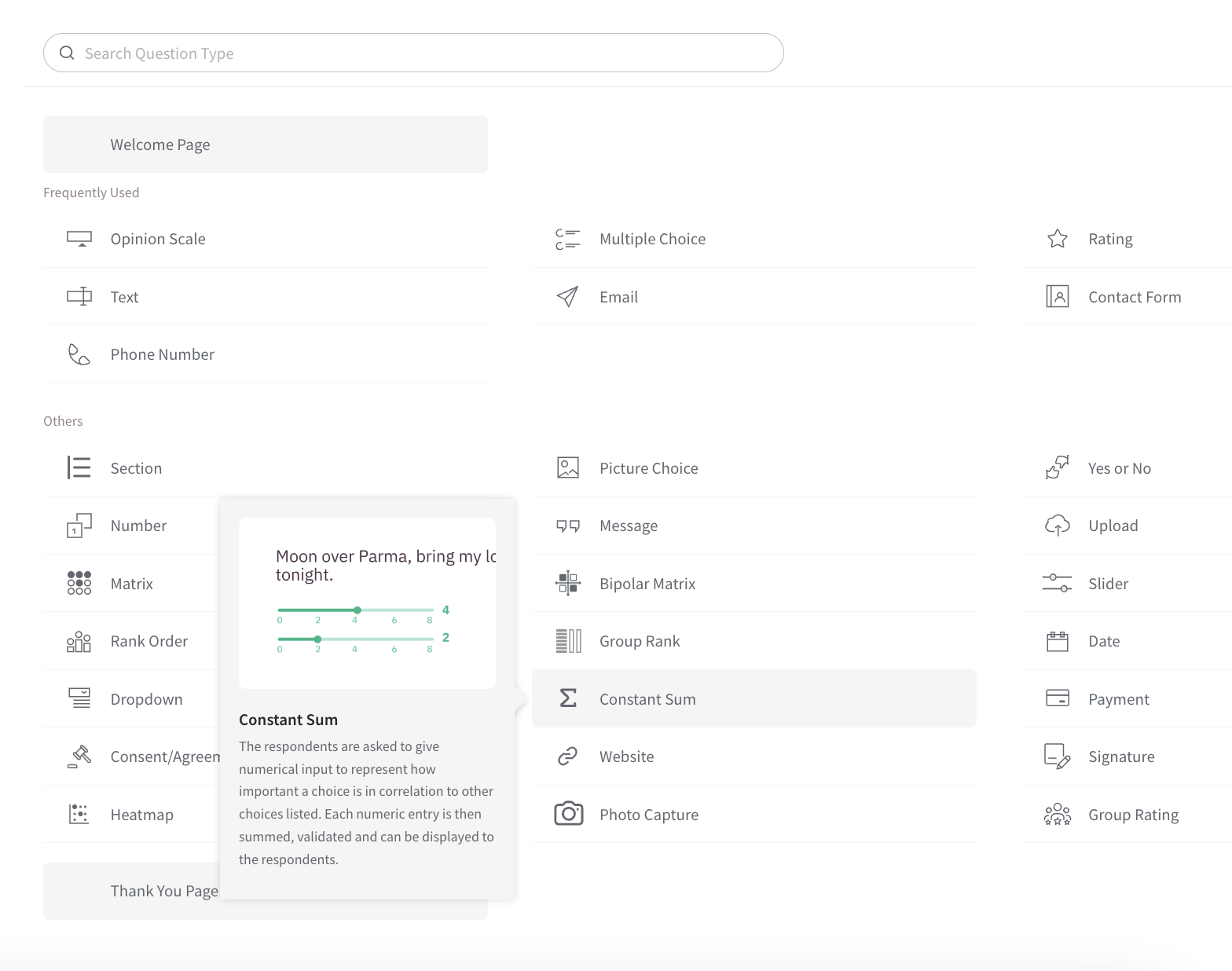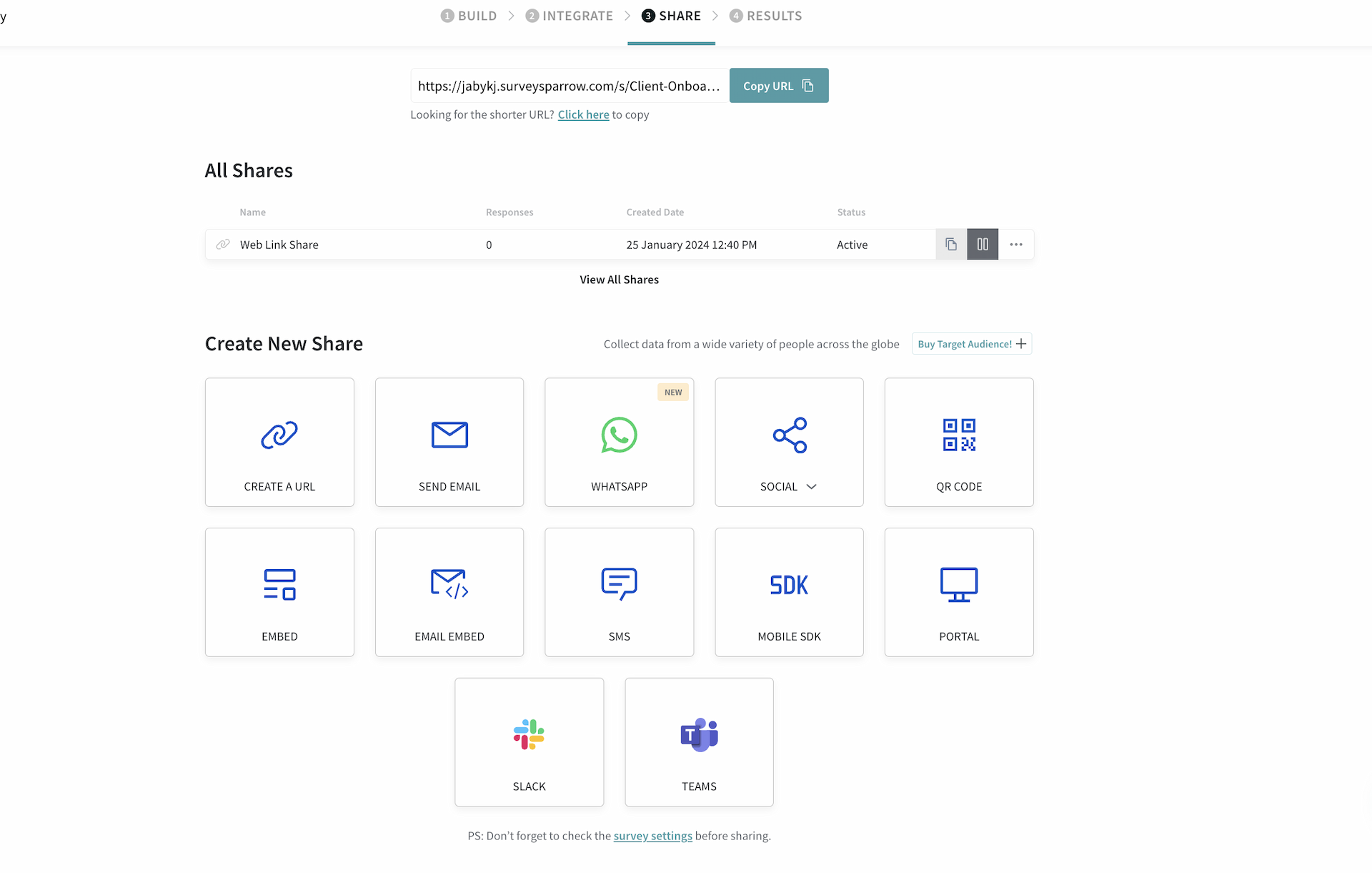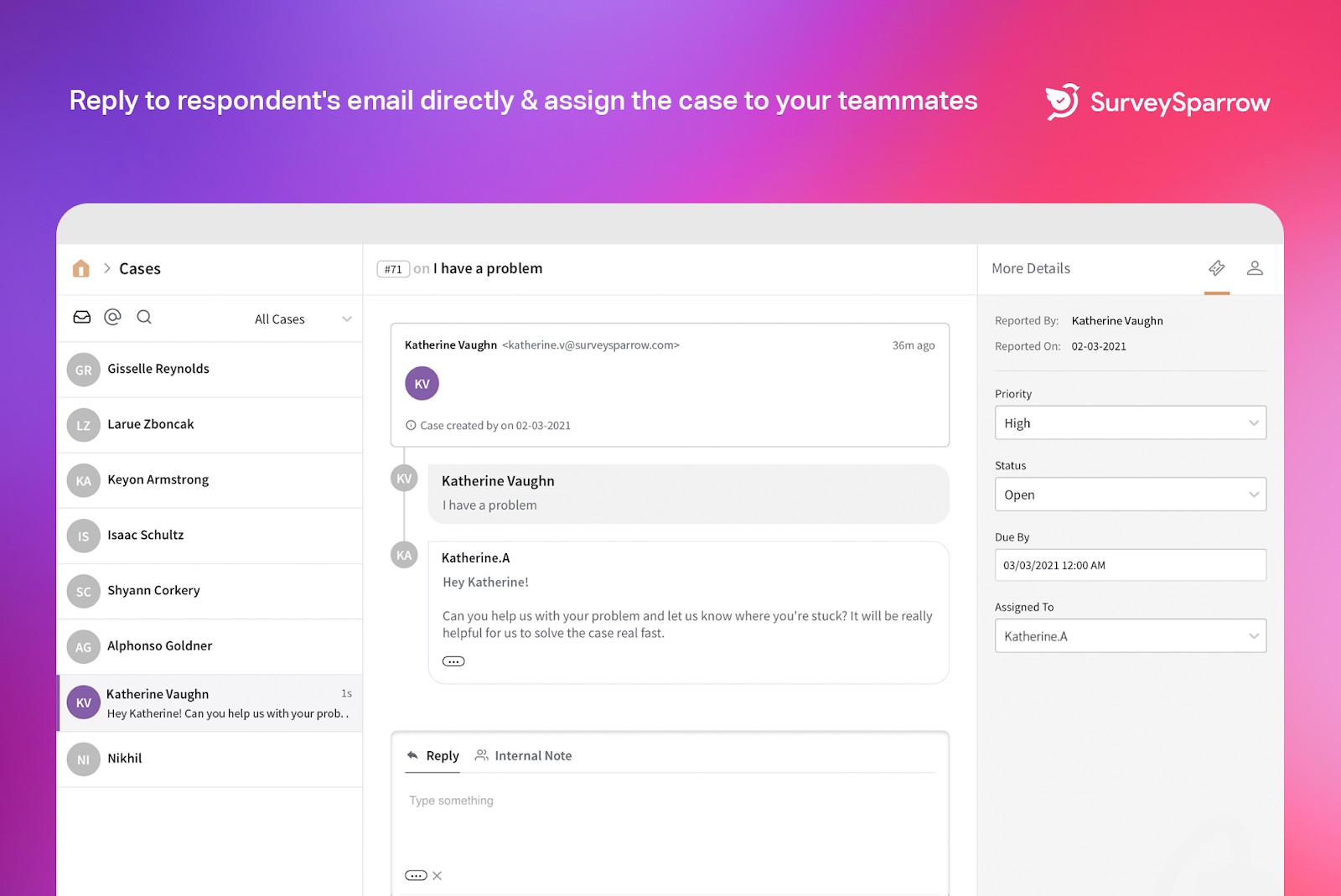Contact Tracing Form Template
Features of our Contact Tracing Form Template
Be it your employees, staff or customers, all the responses are saved in the contact tracing sheet which you can track and trace anytime using our dashboard. Trace and find the contacts to break the chain!
Stores and offline businesses can set up an Offline Survey Kiosk and collect real-time data from employees. No need to rely on internet connectivity. Collect responses without hassles.
Integrate with Slack or Microsoft Teams to reach your workspace easily. You can even embed the contact tracing form for business on your website or send through SMS.
Enhance Safety using Contact Tracing Form Template
Use Cases: Contact Tracing Form Template
Disease Contact Tracing
This was a crucial tool during the COVID-19 pandemic to identify and notify individuals who may have been exposed to the virus. The form could typically be used to collect names, contact information, dates of visit, and potential symptoms or test results. Health authorities and businesses can use these forms to track and trace the movement of individuals and notify them of potential exposure, allowing for isolation and testing.
Workplace Safety
Employers can use the form to monitor incidents and keep an eye on potential hazards in the workplace. The form can include information about the incident, the individuals involved, any injuries sustained, and the steps taken to address the issue. This data is essential for ensuring workplace safety and compliance with health and safety regulations.
Sexual Health Clinics
Sexual health clinics use this form to track the sexual partners of individuals diagnosed with STIs. The form would collect partner names and contact information to facilitate notification and testing. This helps in preventing the further spread of STIs and ensuring that affected individuals receive proper care.
Schools and Daycares
Educational institutions may use it to record interactions among students and staff. These forms are crucial for identifying close contacts in the event of infectious disease outbreaks. The data collected could include names, contact information, and dates of interaction. All this information would help in tracing down where the disease originated or came from and helping to decide whether the school should be converted into a containment zone.
Travel and Transportation
Airlines, public transportation agencies, and travel operators can use contact the form to collect passenger information, including names and contact details. This would be valuable for notifying passengers of potential exposure to infectious diseases, security threats, or other safety concerns.
Emergency Response
First responders, such as firefighters and paramedics, may use the form to document interactions with individuals during emergency responses. Information may include locations and details of the incident. This data helps identify and contact individuals who may have been exposed to hazardous materials or infectious diseases during the emergency.
Natural Disasters
In the aftermath of natural disasters, the form can be used to account for individuals and their whereabouts. These forms can collect contact information and details of the disaster’s impact on individuals. This information would aid in rescue and relief efforts and ensure the safety of those affected.
Public Health Surveillance
Public health agencies could use the form for ongoing disease surveillance. The form would help track individuals’ movements and interactions, monitoring the spread of infectious diseases or potential outbreaks.
Contact Tracing for Employees
Big corporations can set up a team specifically focused on contact tracing. Their job can be to collect the contact details of employees, clients, customers, maintain confidentiality and identify the chain in case anyone infected is found. Create strict SOPs and ensure that they are followed at any cost.
Benefits of Contact Tracing Form Template
Efficient Data Collection
Setting up a contact tracing process can be hectic as it comes with a lot of other aspects like confidentiality of information, government policies, scrutiny. Since there are people involved the risk of errors is too high. Contact tracing forms facilitate quick and efficient gathering of essential contact information, crucial for time-sensitive disease containment efforts.
Customization Options
While designing up the contact tracing process, always consider the worst possible scenario. Draft a strict contact tracing policy that falls in line with the government guidelines. Moreover, you need to ask the right questions in contact tracing questionnaire. That’s where you can use our sample contact tracing form template for the same. Offers flexibility to tailor the form to specific needs, enhancing the relevance and effectiveness of the data collected.
Real-Time Data Analysis
Get immediate analytics and reporting, enabling rapid decision-making and response to emerging public health situations. After the report is ready, consult experts from health departments, and doctors to identify the possible obstacles and loose ends in the process. Rework the process and ensure that it is fully proof. Also, during the execution, be in touch with the government health officials. For employees, clients, or customers traveling from abroad, the information can be collected from concerned health officials as a measure of safety.
Secure Data Handling
Utilize cutting-edge technologies to track contacts while prioritizing the secure management of sensitive personal health information to comply with relevant regulations. Leveraging SurveySparrow’s HIPAA-compliant platform, develop contact tracing apps utilizing GPS and Bluetooth to identify positive cases in proximity to individuals. Implement electronic devices for continuous body temperature monitoring and employ sprayers to maintain sanitized environments. Additionally, enforce mask-wearing and social distancing protocols among all personnel. Utilize our contact tracing questionnaire template to seamlessly manage data and streamline the tracing process.
FAQs
What is a Contact Tracing Form template?
A Contact Tracing Form template is a standardized document used to gather essential information about individuals who have been potentially exposed to an infectious disease. It includes fields for names, contact details, dates of exposure, symptoms, and interactions with infected individuals. This structured tool enables hassle-free data collection for effective contact tracing efforts.
What are the rules for contact tracing?
Contact tracing rules include: identifying and notifying individuals who may have been exposed to an infectious disease, ensuring the privacy and confidentiality of personal health information, and adhering to relevant regulations such as HIPAA.
What is the information required for contact tracing?
Information required for contact tracing includes identifying details of the infected individual, such as name, contact information, and relevant dates of exposure and symptoms.
Additionally, information about individuals who may have been exposed to the infection, including their contact details and potential interactions with the infected individual, is also needed.
When to use a contact tracing form?
A contact tracing form should be used whenever there is a need to track and monitor individuals who may have been exposed to an infectious disease during an outbreak, or in a healthcare setting where infection control measures are crucial.
How do I distribute the contact tracing form?
To distribute the contact tracing form, you can use various methods such as email or text message, QR codes or offline surveys, ensuring accessibility for all individuals.
What is the goal of contact tracing?
The goal of contact tracing is to identify and notify people who may have been exposed to an infectious disease. This helps prevent further transmission and controls outbreaks.
What are the benefits of contact tracing?
The benefits of contact tracing include: early detection of cases, timely intervention to prevent spread, and protection of public health by identifying and isolating contacts.
Other Useful Survey Templates:
See All

Business Process Analysis Questionnaire Template

Equipment Repair Request Form Template

Retirement Party Invitation Template
How to Use the Contact Tracing Form Template
A digital contact tracing form offers several advantages, including: faster data collection, easier organization and analysis of information, and the ability to quickly share data with the relevant authorities. Additionally, they can streamline communication with respondents, provide real-time updates, and ensure data security and privacy through encryption and secure transmission protocols. Here are some tips to optimize your contact tracing form.
Step 1: Design the Form

Step 2: Customize the Questions

Step 3: Share the Form

Step 4: Track Responses & Follow Up


